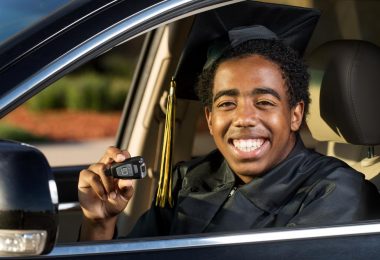Parents who strive to develop an encouraging and close relationship with their children might produce a high-school honors student but not a four-year-college graduate.
This is a quote from a paper titled “Unanticipated Educational Consequences of a Positive Parent-Child Relationship.” from the Journal of Marriage and Family by Ruth N. Lopez Turley, Matthew Desmond, and Sarah K. Bruch and reviewed in The Chronicle for Higher Education by Tom Bartlett.
Clearly communication, interaction, and support, along with stressing a family value in education has proven to produce higher grades for high school students. Teenagers certainly need direction and support. And, those higher grades and the push to excel to a college education make for important factors in acceptance to college in the first place.
However, students whose parents hover (known as helicopter parents) or have parents with whom they maintain close ties are more apt to not break away with enough independence to succeed at a college far away or over four years. They are also less likely to break away from the lifestyle they are familiar with, and, therefore, do not strive for an improved life style.
Being too close to your college student can have negative effects
- If you try to avoid having your student fail or make mistakes, these students will learn less from their mistakes and are less likely to develop problems-solving skills.
- If you do not begin to view your student as separate from you, the student will not view him or herself as independent and will lack self-confidence.
- If you do not allow your student to explore, the student may be become less curious and not be as self-aware because s/he has not tested different waters.
What should you do?
- Don’t be the problem solver. Instead of fixing, talk problems over with your student and advise, but let him/her go through the fixing steps alone.
- Back away. Backing away first takes your pressures off the student. It also allows students to look at their own learning styles and survival skills, Finally, it helps students become more self-motivated, rather than always working to please his/her parents.
- Finally, relax. When you relax, your student will relax. He/she will feel more positive about his/her experience and develop better self esteem.
Other things you can do:
- Send care packages
- Be positive
- Be there to talk through students’ problems with them—not to solve but to sound out
- Wait at each crisis and take a deep breath to see is it truly is a crisis
Don’t:
- Accept calls at all times. Limit phoning home to once a week
- Encourage too many visits home
- Pry
For more tips on how to encourage your student’s success in college, check out our article on the what the role of a college parent is for more pointers and useful information.







